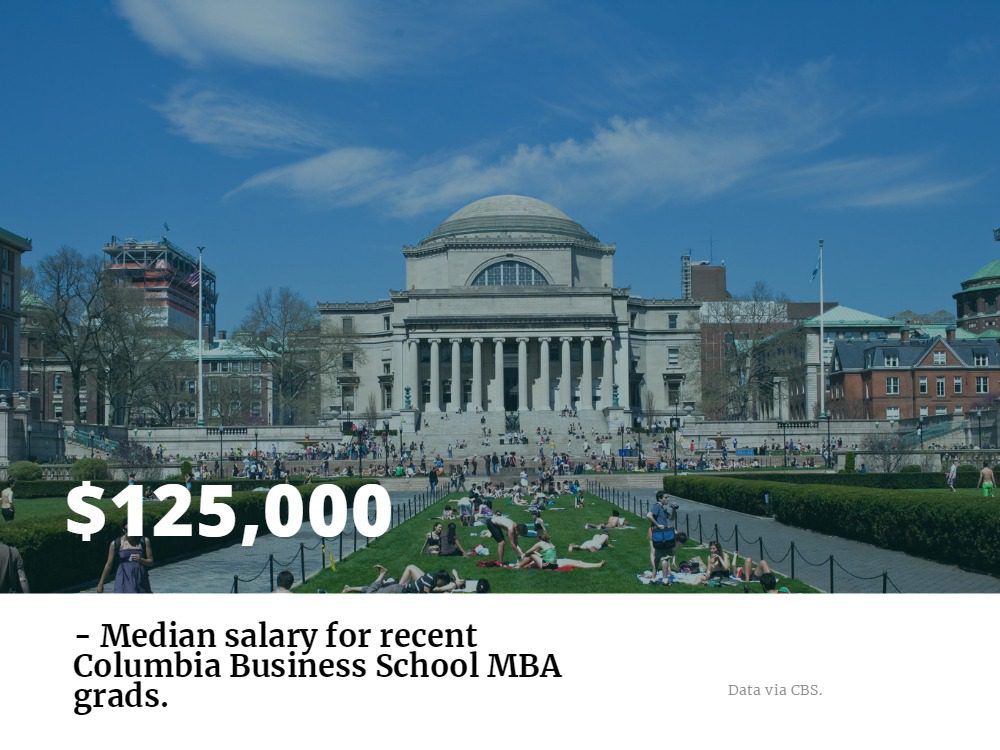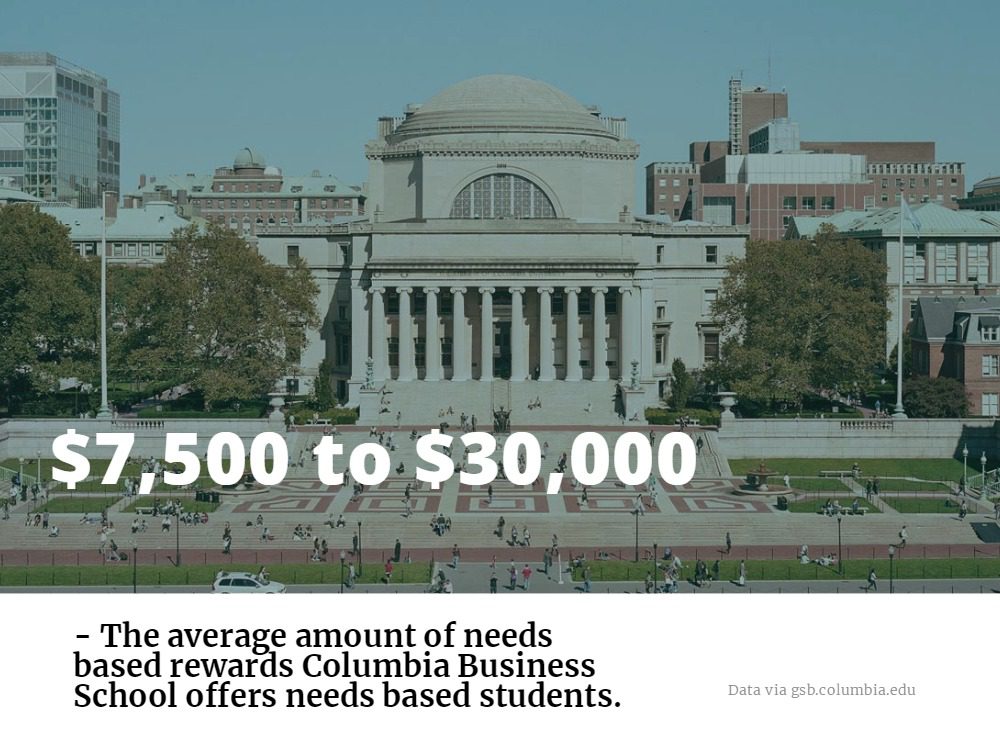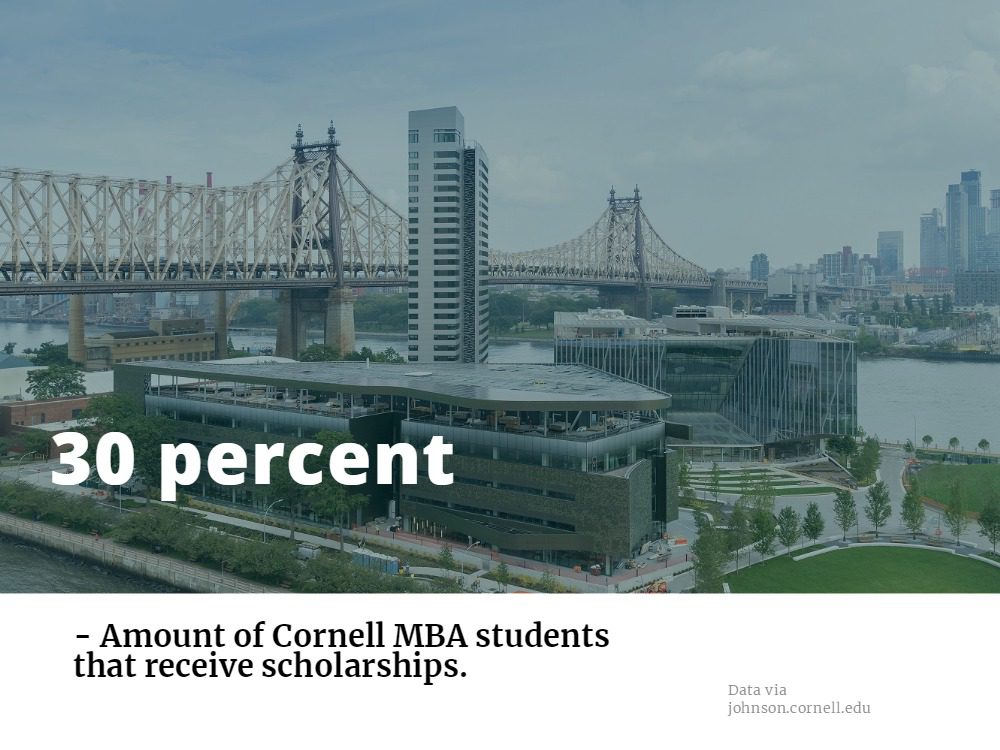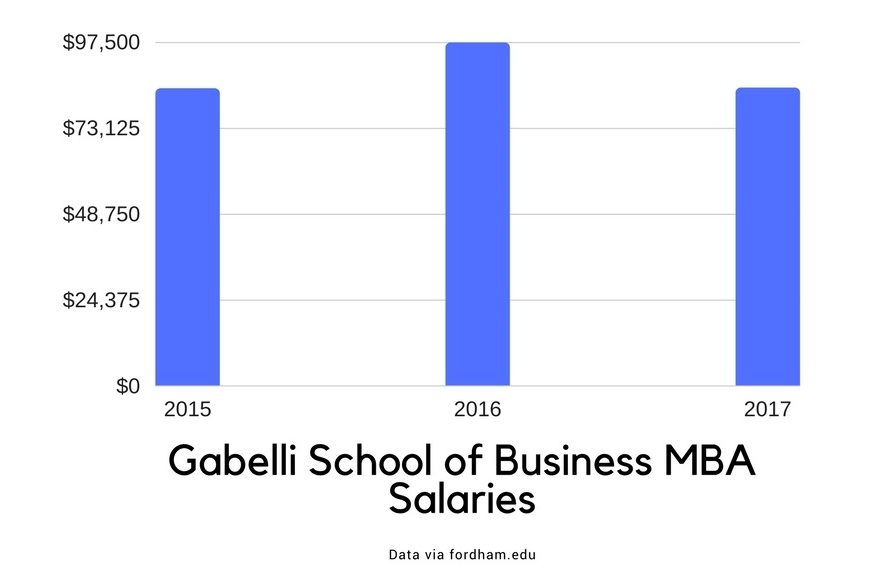The Northeast Region’s Top Accelerated MBAs

The numerous advantages of an accelerated MBA start with one that’s particularly appealing–low cost. And while accelerated programs are more affordable, they are by no means less valuable or challenging than two year programs. In fact, they can be quite intensive in that they allow students to leverage their undergrad business education directly to MBA studies by covering core requirements.
The Best Energy Industry MBA Programs in the U.S.

With the current shift in global economics that coincides with climate change, business schools have seen the benefit of educating students toward a sustainable future. Whether through influencing public policy, investing wisely in carbon reduction technologies, or developing businesses that serve to adjust to global warming, MBA grads with a focus within the energy industry have limitless career prospects.
The Best Energy Industry MBA Programs in the U.S.

The University of California, Berkeley Haas School of Business‘ Bay Area location (a center for innovation in sustainability) make it a clean energy industry leader. With an interdisciplinary approach that combines engineering, public policy, and law, Berkeley Haas MBA students have access to such initiatives as Cleantech to Market (C2M). This partnership between grad students, industry professionals, and researchers offers an annual symposium presenting the newest trends in clean technologies.
In C2M, professionals in such arenas as energy generation, storage, grid technology, and water purification guide students through past solutions. Students integrate their curriculum into real world solutions with the help of these professionals and leading researchers.

Cornell’s SC Johnson Graduate School of Management also offers a wealth of opportunities in the development of sustainable solutions for MBAs with the school’s immersion program, the Center for Social Enterprise. After receiving a sizable endowment in 2002, researchers and business leaders formed the SC Johnson Professorship in Sustainable Global Enterprise. Recently ranked 2nd overall by Bloomberg Businessweek, the sustainability curriculum at Johnson has achieved wide acclaim.
In addition, Johnson offers an Environmental Finance and Impact Investing Fellowship. With projects sponsored by corporate and government entities, students receive opportunities to work with the World Bank, Barclays, and The Water Initiative to address pressing issues in development and the increasing demand to find alternative energy sources.

UNC’s Kenan Flagler Business School offers an MBA that they consider “unique among major business schools.” The program, which exhibits a marked emphasis upon ROI, focuses on the energy value chain, and the intersection of oil and gas usage, renewables, and petrochemicals.
This degree focuses primarily on training future leaders in corporate sectors, power generation, renewable energy, investing firms, and consulting firms specializing in energy.

MIT’s Sloan School of Management takes an exemplary role in leadership development for the sustainable energy industry. According to Sloan’s Sustainability Initiative, the school “empowers leaders to act so that humans and nature can thrive for generations to come.” With a mission that includes a sustainability certificate, partnerships with NGOs and government agencies, and an ongoing lecture series, MIT Sloan offers a strong foundation in cleantech development.
In a recent roundtable, experts in renewable energy supply chain discussed potential solutions. These include wind farms and solar power for underserved populations.
“When you’re inside a startup and talking to your colleagues all the time, it’s easy to lose sight of the big picture,” says Sandhya Murali, a recipient of the Sustainability Certificate. “Being able to talk with experts in the field and share ideas with veterans in the industry was extremely helpful.”
Murali, ’15, is the CEO of the Solstice Initiative, which provides solar energy to communities in every economic strata.

Finally, University of Pennsylvania’s Wharton School of Business is at the forefront of energy efficiency, offering an MBA major in Business, Energy, Environment and Sustainability. Combining a focus in tech, regulation, finance, and business modeling trends, this degree prepares MBAs for leadership roles in energy, clean-tech investment, energy banking, consulting, government, and the sustainable non-profit industry.
Courses include Energy Markets and Policy, Energy Finance, Environmental Management, Law and Policy, Social Impact Marketing and Energy Law.
In addition, there is a dual degree option for Wharton MBAs. In which, students can combine an MBA with a Master in Environmental Studies for career opportunities in energy management.
What are the Best Healthcare MBAs You Can Find in New York City?

New York City is not only home to a number of the finest business schools in the world—it’s also where you can find some of the best healthcare programs this country has to offer. Continue reading…
A Look At New York’s Best Real Estate MBA Programs

In 2017, the United States Commercial Real Estate Services group (CBRE), listed New York City’s real estate investments markets among the three largest in the world, sandwiched between Tokyo and Los Angeles. This makes New York City the perfect place to learn about the multi-faceted, constantly-evolving field of real estate. For aspiring MBA’s interested in pursuing real estate, we’ve laid out some of the best New York real estate MBA programs the metro has to offer.
The Best New York Real Estate MBA Programs
Columbia Business School
The oft-celebrated Columbia Business School MBA Real Estate Program emphasizes finance and investment management, headquartered at the Paul Milstein Center for Real Estate. There, according to the school, students will gain an education focused on “capital markets, entrepreneurship, and global business.” Since many of Columbia’s alumni remain in New York metro, the school has access to a large network of professionals to engage in speaking events, panels, and mentorship with current students. Students in this program must take Real Estate Finance, which the school considers the Real Estate program entry course. Students then take nine credits of real estate electives.
The Real Estate Private Equity class lets students gain real-world experience. Groups of students work with industry sponsors to develop a business plan and present their final projects to a panel of professionals. Given the hands-on private equity and investment experience provided by this course, it makes sense that in 2017, 46 percent of students who graduated from the MBA Real Estate program went on to careers in Investment Management/Private Equity.
Nearly 4 percent of the most recent MBA class from CBS entered the New York real estate industry, earning a median income of $120,000 per year and, of course, heavy amounts of extra compensation. These graduates earned positions at notable real estate firms, such as: Drake Real Estate Partners, GLL Real Estate Partners, Greystar Real Estate Partners, LLC, Summit Real Estate Group, LLC, TKF Real Estate Investment LLC, and Trilogy Real Estate Management.

SC Johnson Graduate School of Management – Cornell University
At the Cornell University SC Johnson Graduate School of Management, students can pursue a dual degree in real estate and business administration. The MPS in Real Estate/MBA is a collaboration between Cornell SC Johnson’s School of Hotel Administration and Johnson. The dual degree spans six semesters (three years), and includes two summer internships. The first year of the degree is in either the real estate program or the MBA program, but students can take courses in both programs in the following semesters.
Students pursuing real estate at Cornell benefit from access to the the Cornell Real Estate Council, which the school promotes as “one of the largest university-based networks of real estate professionals in the world.”
YOU MAY ALSO LIKE: Finding the Best Real Estate MBAs in Los Angeles
Rutgers Business School, Newark and New Brunswick
The Real Estate Concentration at the Rutgers Business School in Newark and New Brunswick, New Jersey, has several objectives. The curriculum is geared toward arming students with the ability to assess investment risks in real estate markets, determine the best way to utilize a property based on market and demographic information, and gain a thorough knowledge of the legal intricacies involved in real estate. In addition to their elective and core MBA courses, b-schoolers with a real estate concentration are required to take the following courses: Aggregate Economic Analysis, Real Estate Development, Real Estate Law, and Real Estate Finance.
Stern School of Business – New York University
Any discussions of the best business schools in New York metro, and perhaps the world, are likely to include mention of the NYU Stern School of Business. Stern’s MBA with a Real Estate Specialization helps students understand the intricacies of real estate markets, financing real estate projects, real estate development, and managing real estate investments. The curriculum includes courses like: Real Estate Development and Entrepreneurship, Urban Systems, and Real Estate Investment Strategies.
One major perk of Stern’s program is its flexibility; Stern MBA’s can select up to three specializations, so students are not limited by their choice. Real estate is a vast field, with a multitude of facets. MBA’s interested in New York real estate might choose a secondary specialization to complement their specific interests, such as entrepreneurship and innovation or marketing.
How NYC Business Schools Help the Underprivileged Applicants

Pursuing an MBA is a shrewd move for anyone looking to earn a competitive salary right out of school. Though attending a renowned school can up the price tag of earning an MBA, it may also increase the overall return on investment. According to an article in U.S. News & World Report, “… graduates of top-tier business schools usually earn higher starting salaries than their peers who went to lower-ranked schools.”
It’s not jut the opportunity to have a lucrative job right out of school that makes a high starting salary appealing. An enviable starting salary could mean more earning potential down the line. However, a top-tier school may seem out of reach for low-income applicants. After all, how can you enjoy the return on investment if you can’t afford to invest in the first place?
Luckily, many prestigious business schools offer resources for students from different socioeconomic backgrounds. Below, we’ve outlined the resources available for low-income applicants at five of New York City metro’s best business schools.
How NYC Business Schools Help the Underprivileged
Columbia Business School
Columbia Business School offers need-based awards to many students, which may result in anywhere from $7,500 to $30,000 in tuition support. Nearly half of applicants receive need-based scholarships, which are automatically renewed at the start of the second year. Columbia students can also apply for private and federal loans. To create incentive for students to choose careers in public and nonprofit fields, the school offers a Loan Assistance Program for students who utilize their education to pursue these paths. Students are eligible to apply for this program for up to five years after graduation. Depending on the extent of students’ debt, they may receive anywhere from $2,000 to $10,000 of annual support. Columbia students may also receive merit-based scholarships, such as the Columbia Fellows Program, which may cover full or partial tuition and is granted to applicants with an outstanding track record in leadership and creativity.

Stern School of Business—New York University
NYU’s Stern School of Business offers a variety of scholarships for high-achieving applicants. According to the school’s website, nearly a quarter of students who enter the full-time MBA program receive a merit-based scholarship. There are also additional merit-based opportunities for students coming from different backgrounds and perspectives. Scholarships like the Advancing Women in Business Scholarship and the Forte Fellowship are particularly geared toward female-identifying students, to support women in business. The ROMBA Fellowship aims to help LGBTQ students succeed in business education. The Consortium Fellowship exists to increase the number of minorities such as Hispanic Americans, Native Americans, and African Americans in business school as well.
Gabelli School of Business—Fordham University
At the Fordham University Gabelli School of Business, graduate students may be eligible for federal financial aid, merit scholarships, or a variety of graduate assistantships. Awards based on academic excellence range from $10,000 to full tuition. Exceptional students may be eligible for awards like the Dean’s Premier Scholarship, which includes a $20,000 living stipend, and may include a stipend toward one of Fordham’s global programs. Students can also apply for a plethora of need/merit-based scholarships, like the Hitachi Diversity and Inclusion Scholarship, which seeks to help underrepresented minorities finance their education.
Rutgers Business School, Newark and New Brunswick
The Financial Times ranked Rutgers Business School among the top 50 MBA programs for return on investment in 2017, citing a 130 percent increase in salary for students within three years of completing their degree. Moreover, the school’s website states that, “More than 80 percent of Rutgers students receive some form of financial aid.” Moreover, at $31,011 per year (not including fees), this program is far more affordable than many other prestigious schools. Students can apply for federal or private loans, grants, and an array of scholarships. In addition to the awards offered by the Rutgers Business School Graduate Scholarship Fund, the Rutgers website lists 30 fellowships, scholarships, and partnerships. The Ralph Bunche Fellowships, for example, provide tuition remission, and a $15,000 living stipend to minority students from disadvantaged socioeconomic backgrounds.
SC Johnson Graduate School of Management—Cornell University
Around 30 percent of entering the SC Johnson Graduate School of Management students receive some level of scholarship support. Scholarships like the National Society of Hispanic MBA’s (NSHMBA) and the TOIGO Fellowship specifically seek to help underrepresented minorities. The MD MBA Dual Degree Program and Lee Family Scholarship supports students on the rigorous path to receive their MD/MBA. Additionally, Cornell’s Park Leadership Fellows Program awards full tuition to up to 25 MBA applicants annually. The award is granted based on personal and professional achievements, academic performance, social contributions, and leadership. Students can also apply for federal and private loans.

2018 Trends: New York City’s MBA Future

It doesn’t take a stable genius™ to figure out that New York City is the world’s most highly sought-after 22.82 mi² strip of land to pursue an MBA.
As is the case with most prime real estate, the stakes are high and the competition fierce. For many prospective business schoolers, the decision to step into the gauntlet is one made with a healthy sort of trepidation.
Hefty price tags and cutthroat admissions present real barriers for prospective students and deter more than a few. Still, many equate the New York MBA experience to a dream scenario—or a Gordon Gecko-style fantasy, replete with the promise of a staggering salary, an attractive range of employment opportunities, and prime placement in a city of constant progress.
How does the dream stack up to reality? Schools weigh in on 2017 trends for graduates, many of whom report satisfaction with employment offers. Let’s take a look at how MBA graduates are getting the most of their newly minted degrees!
2018 New York City MBA Trends
Columbia Business School
According to the school’s most recent MBA employment report, less than 2 percent of Columbia Business School graduates reported salary as the primary reason for accepting an offer. While the honestly of that polling answer pool is debatable, Columbia School of Business is the king when it comes to starting salaries on our list, with median salary of $125,000. Of the graduating class, 93.2 percent of students accepted employment offers within three months. Approximately 28 of 1,019 total students stepped aside to create their own companies. Per the standard with many of the NY-area schools, the largest portion of graduates selected financial services (34.4 percent) as their field of choice, followed closely by consulting (33.1 percent) and media and technology (15.6 percent). Companies such as McKinsey & Company, Amazon, Goldman, Sachs & Co., and Morgan Stanley welcomed a majority of Columbia’s finest.

The boastful salary expectations, unsurprisingly, are tempered a bit by the costs of the CBS MBA program. The current estimated budget for Columbia MBAs comes in at $107,749 in the first year, of which includes over $21,000 for room and board. Tuition in isolation, however, costs $71,544 for the first year. Looking at a degree at any New York City school, never mind an Ivy League institution, means cost of living has to be taken in heavy consideration, which can vary greatly from borough to borough.
Fordham University’s Gabelli School of Business
About 88 percent of students in the Fordham Gabelli School of Business graduating class accepted employment offers within six months after graduation. Starting salary rates were below Columbia’s, at an average of $84,593, with an average signing bonus of $15,536 and additional compensation of $14,510. That average salary figure is an approximate 13 percent drop from the previous year’s reported averages.
Out of the many fields MBA students typically chose this year, Fordham students favored less predictable fields: just under 50 percent went into financial services, while 11 percent earning employment in consumer products, technology, and media, respectively. Unlike MBA graduates from many other NYC schools, however, only 5 percent of Gabelli students went into consulting, signifying a deeper trend of tech continuing its encroachment on MBA talent.

Compared to many other schools on this list, Gabelli’s distinct advantage is cost. The first year of the MBA program currently costs $49,645: more than 30 percent less than the cost of the Columbia full-time MBA tuition.
NYU Stern School of Business
This may shock you, but, NYU Stern MBA students are doing pretty well, with an average starting salary of $121,146 in placement of some of the most prestigious institutions in finance (32.4 percent), consulting (26 percent), technology (16.8 percent), real estate (3.5 percent), and retail (3.2 percent). Around 83 percent of those students landed jobs in the Northeast U.S., while nearly 10 percent of graduates found positions in Asia, Europe, and South America. Nearly half of all job offers were the result of an internship facilitated by NYU.
Like the trend at Gabelli, NYU grads jumping into tech has been steadily climbing over the past few years, rising from just 6 percent of employed grads from the Class of 2014, to 17 percent for the most recent class. The incremental increase coincides with the school’s recently added Tech MBA.
Stevens Institute of Technology School of Business
In a metro brimming with very successful business schools, the Stevens Institute of Technology School of Business separates itself with an incredible employment placement rate of 94.9 percent; the best placement among all business schools in the country, according to U.S. News & World Report.
The Stevens MBA faculty claim to provide “exceptional career services much earlier than other universities.” 90 percent were employed in the industry of their choice. Starting salaries fell between $88,805—$125,000. Companies such as Goldman Sachs, Protiviti, PwC ,and Prudential offered employment opportunities for these students.
Cornell University’s SC Johnson Graduate School of Management
About 93 percent of students from Cornell‘s Ithaca and NYC campuses received employment offers within six months of graduation. The average base salary was $125,578, which was an increase from previous years “driven by salary growth in consulting and finance.” Chosen fields for students were finance (38 percent), consulting (26 percent), and general management (21 percent). Out of the 122 companies that sought 2017 graduate students, the top recruiters were Citi Group, Amazon, Deloitte Consulting LLP, Ernst & Young, and McKinsey & Company.
Even Cornell MBA students in an internship were earning some of the best salaries in the country, pulling in a reported $8,764 per month. Those figures out over a 12-month rate are more than triple the average intern salary, according to Glassdoor data.
